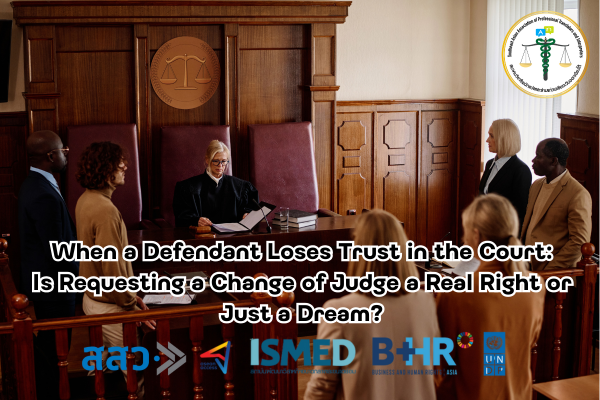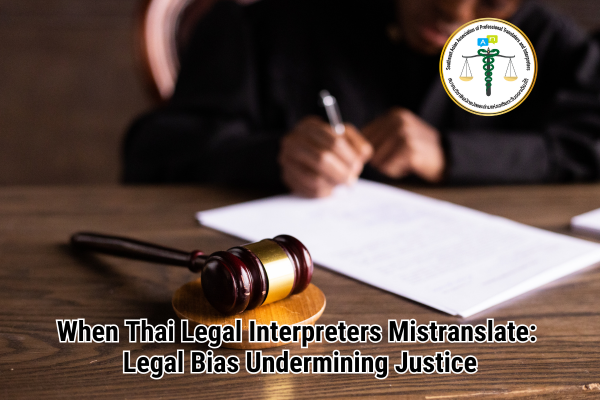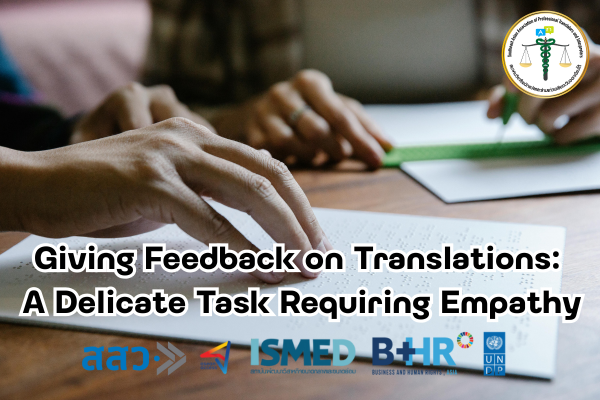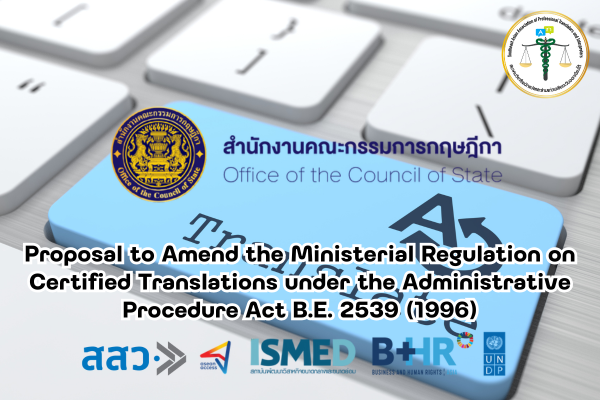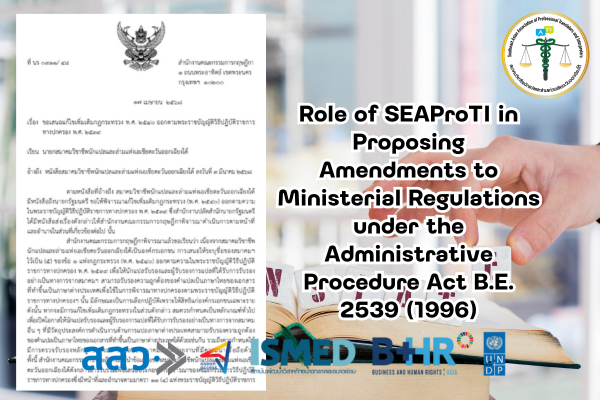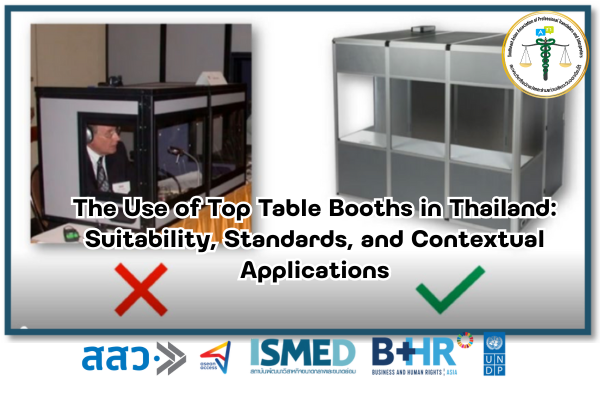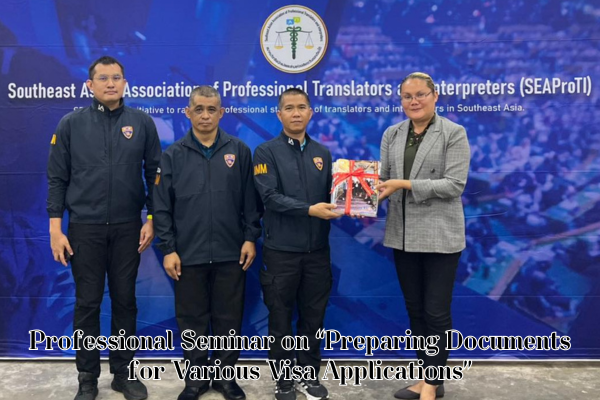When a Defendant Loses Trust in the Court:
Is Requesting a Change of Judge a Real Right or Just a Dream?
15 April 2025, Bangkok – In the justice system, “trust” is not merely an emotion—it is the foundation upon which the legitimacy of the court rests. If a judge’s impartiality is called into question, or if the defendant senses unfairness, the right to request a change of judge or judicial panel becomes a critical mechanism for protecting procedural fairness.
However, the theoretical existence of such a right often diverges from the reality of practice. This article explores the legal framework, standards, and academic analysis surrounding requests for judicial disqualification—especially when rooted in a defendant’s perceived loss of confidence in the court—to evaluate whether this right is an actionable safeguard or merely an idealistic aspiration.
1. What Does It Mean to Request a Change of Judge?
1.1 Legal Definition
A request to change a judge—formally known as a motion for judicial disqualification—refers to a legal petition made by a party in a case to replace the presiding judge or panel due to reasons such as conflict of interest, bias, or any circumstance that raises reasonable doubt regarding the judge’s impartiality.
1.2 Applicable Case Types
This right applies across various types of cases, including civil, criminal, administrative, and labor disputes. The relevant legal frameworks include:
- Civil Procedure Code, Sections 11–12
- Criminal Procedure Code, Sections 13–14
- Administrative Procedure Act
- Relevant Supreme Court precedents and ethical guidelines
2. Legal Grounds for Requesting Disqualification
2.1 Acceptable Grounds for Review
A request may be considered valid if:
- The judge has a close relationship with a party or attorney
- The judge has a financial interest in the case outcome
- The judge exhibits behavior that signals prejudice
- There are pending complaints against the judge
- Circumstances exist that reasonably undermine impartiality
2.2 Limitations and Challenges
- The petitioner must present clear and specific evidence
- Courts often exercise broad discretion in dismissing weak petitions
- Timing is critical—such motions must be filed before the final judgment
- Mere “feelings of distrust” without substantive proof are insufficient
3. Procedure for Submitting a Motion for Disqualification
3.1 Filing Process
- Submit a written petition to the court with supporting evidence
- Clearly articulate legal reasoning without accusatory language
- The court or chief judge will review the merits of the request
- If accepted, the judge may recuse themselves, or a new panel may be assigned
3.2 Judicial Practice
In reality, judicial disqualification occurs rarely. Courts typically exercise caution to prevent such motions from being misused as delay tactics. Additionally, courts must assess the overall integrity of the proceedings before approving any such change.
4. The Interpreter’s Role in Judicial Disqualification Proceedings
4.1 Upholding the Integrity of the Process
- For non-Thai-speaking litigants, interpreters play a pivotal role in bridging the language gap and ensuring access to justice.
4.2 Ethical Responsibilities of the Interpreter
- Interpret verbatim and without omission or embellishment
- Remain strictly neutral and non-participatory
- Do not speculate or editorialize the petition’s intent
- Preserve confidentiality of all courtroom proceedings
- Maintain fidelity to the tone and intent of both parties and the court
5. Critical Reflections: A Right in Theory or Practice?
Though the legal right to seek judicial disqualification exists, its practical use remains limited by structural and institutional factors, such as:
- Internal adjudication by the same judiciary
- The absence of truly independent oversight mechanisms
- Reluctance among defendants to exercise this right out of fear of retaliation
Conclusion
The ability to request a change of judge is a recognized legal safeguard and can play a vital role in upholding the fairness of legal proceedings, particularly when impartiality is in doubt.
Yet, in practice, its successful invocation depends on three key factors:
- Interpretation of the law that is generous to the petitioner
- Public awareness of the right and how to exercise it
- Independent mechanisms for external review and accountability
Ultimately, public confidence in the judiciary is not merely granted by legal appointment or enshrined in legislation—it must be earned and maintained through open, accountable, and fair proceedings. A justice system worthy of public trust must welcome scrutiny, even from those who stand accused.
SEAProTI’s certified translators, translation certification providers, and certified interpreters:
The Southeast Asian Association of Professional Translators and Interpreters (SEAProTI) has officially announced the criteria and qualifications for individuals to register as “Certified Translators,” “Translation Certification Providers,” and “Certified Interpreters” under the association’s regulations. These guidelines are detailed in Sections 9 and 10 of the Royal Thai Government Gazette, issued by the Secretariat of the Cabinet under the Office of the Prime Minister of the Kingdom of Thailand, dated July 25, 2024, Volume 141, Part 66 Ng, Page 100.
To read the full publication, visit: the Royal Thai Government Gazette
เมื่อจำเลยไม่เชื่อใจศาล… การขอเปลี่ยนผู้พิพากษา ทำได้จริงหรือแค่ฝัน
15 เมษายน 2568, กรุงเทพมหานคร – ในกระบวนการยุติธรรม คำว่า “ศรัทธา” ไม่ใช่เพียงอารมณ์หรือความรู้สึก แต่คือ “เงื่อนไขพื้นฐาน” ที่กำหนดความชอบธรรมของศาล หากศาลถูกตั้งคำถามเรื่องความเป็นกลาง หรือจำเลยรู้สึกไม่มั่นใจในความยุติธรรมขององค์คณะผู้พิพากษา สิทธิในการยื่น “คำร้องขอเปลี่ยนองค์คณะ” จึงกลายเป็นกลไกสำคัญในการคุ้มครองสิทธิของคู่ความ
อย่างไรก็ตาม สิทธินี้ในทางทฤษฎีกับความเป็นจริงทางปฏิบัติมักแตกต่างกัน บทความนี้จะสำรวจบริบททางกฎหมาย หลักเกณฑ์ และข้อพิจารณาทางวิชาการเกี่ยวกับการขอเปลี่ยนผู้พิพากษาในคดีความ โดยเฉพาะเมื่อเกิดขึ้นจากความไม่ไว้วางใจของจำเลย เพื่อประเมินว่าสิทธินี้เป็นกลไกเชิงประจักษ์ หรือเป็นเพียงแนวคิดเชิงอุดมคติที่ห่างไกลความจริง
1. ความหมายและขอบเขตของการเปลี่ยนองค์คณะผู้พิพากษา
1.1 นิยามเชิงกฎหมาย
การเปลี่ยนองค์คณะผู้พิพากษา หมายถึง การยื่นคำร้องต่อศาลให้เปลี่ยนผู้พิพากษาที่พิจารณาคดีนั้น ด้วยเหตุอันชอบตามกฎหมาย เช่น มีความเกี่ยวข้องกับคู่ความ มีผลประโยชน์ทับซ้อน หรือมีเหตุอันควรสงสัยในความเป็นกลางของศาล
1.2 ประเภทของคดีที่สามารถยื่นคำร้องได้
สิทธินี้ครอบคลุมทั้งคดีแพ่ง อาญา ปกครอง และแรงงาน โดยกฎหมายที่เกี่ยวข้อง เช่น
- ประมวลกฎหมายวิธีพิจารณาความแพ่ง มาตรา 11 และ 12
- ประมวลกฎหมายวิธีพิจารณาความอาญา มาตรา 13 และ 14
- พระราชบัญญัติวิธีพิจารณาคดีปกครอง
- คำสั่งศาลฎีกาและแนวคำพิพากษา
2. หลักเกณฑ์ในการขอเปลี่ยนผู้พิพากษา
2.1 เหตุผลที่ศาลอาจรับพิจารณาคำร้อง
ผู้พิพากษามีความสัมพันธ์กับคู่ความหรือทนายความ
- มีผลประโยชน์เกี่ยวข้องกับผลคดี
- แสดงพฤติกรรมหรือถ้อยคำที่สื่อถึงอคติ
- มีการร้องเรียนต่อองค์กรอิสระ เช่น คณะกรรมการตุลาการ
- มีประวัติหรือบริบทที่ส่งผลต่อความเป็นกลางในคดี
2.2 ข้อจำกัดในการยื่นคำร้อง
- ต้องมี “พฤติการณ์พิเศษ” ที่แสดงความไม่เหมาะสมอย่างชัดเจน
- ศาลมีดุลพินิจอย่างกว้างขวางในการยกคำร้อง
- ต้องยื่นภายในเวลาที่กำหนดก่อนการพิพากษา
- การอ้างเพียง “ความรู้สึกไม่ไว้ใจ” โดยไม่มีหลักฐาน ถือว่าไม่เพียงพอ
3. กระบวนการยื่นและพิจารณาคำร้องในทางปฏิบัติ
3.1 ขั้นตอนทางเอกสาร
- ยื่นคำร้องเป็นลายลักษณ์อักษร พร้อมหลักฐานสนับสนุน
- อธิบายเหตุผลอย่างเป็นระบบและไม่ใช้ภาษากล่าวหา
- ส่งให้ศาลหรือประธานองค์คณะพิจารณา
- หากคำร้องถูกยอมรับ อาจมีการเปลี่ยนองค์คณะหรือสั่งให้เริ่มการพิจารณาใหม่
3.2 แนวปฏิบัติในทางศาล
ในทางปฏิบัติ การเปลี่ยนองค์คณะเกิดขึ้นได้น้อยมาก โดยศาลจะใช้ดุลพินิจอย่างระมัดระวังเพื่อไม่ให้กลายเป็นกลไก “ถ่วงเวลา” ของคู่ความ อีกทั้งยังต้องพิจารณาถึงผลกระทบต่อความเป็นธรรมโดยรวมของกระบวนการพิจารณาคดี
4. บทบาทของล่ามในคดีที่มีคำร้องเปลี่ยนองค์คณะ
4.1 ความสำคัญของล่ามในกระบวนการยุติธรรม
ในกรณีที่คู่ความเป็นผู้ไม่ใช้ภาษาไทย ล่ามมีบทบาทในการถ่ายทอดข้อความระหว่างฝ่ายคู่ความกับศาลอย่างถูกต้อง ครบถ้วน และเป็นกลาง
4.2 ล่ามต้องปฏิบัติตามจรรยาบรรณอย่างเคร่งครัด
- ห้ามตีความหรือแสดงความเห็นต่อเนื้อหา
- ห้ามโน้มน้าวหรือเบี่ยงเบนความหมายของคำร้อง
- รักษาความลับของข้อมูลในชั้นศาล
- แปลคำแถลงและคำสั่งของศาลโดยคงเจตนาเดิมให้ชัดเจน
5. ประเด็นเชิงวิพากษ์: สิทธิที่เป็นจริงหรืออุดมคติ
แม้การเปลี่ยนองค์คณะผู้พิพากษาจะเป็นสิทธิที่รับรองโดยกฎหมาย แต่ในเชิงโครงสร้างอำนาจและวัฒนธรรมองค์กรของกระบวนการยุติธรรม การใช้สิทธินี้ยังเผชิญข้อจำกัดหลายประการ เช่น:
- การพิจารณาคำร้องโดยบุคคลภายในองค์กรเดียวกัน
- การขาดกลไกตรวจสอบภายนอกที่เป็นอิสระ
- ความลังเลของจำเลยในการใช้สิทธินี้ เพราะเกรงว่าจะส่งผลลบในคดี
บทสรุป
การขอเปลี่ยนผู้พิพากษา เป็นกลไกทางกฎหมายที่มีอยู่จริง และมีบทบาทสำคัญในการธำรงความยุติธรรมในกระบวนการพิจารณาคดี โดยเฉพาะในบริบทที่คู่ความหรือจำเลยรู้สึกว่าไม่สามารถได้รับการพิจารณาที่เป็นกลางและโปร่งใส
อย่างไรก็ตาม ในเชิงปฏิบัติ การใช้สิทธินี้ยังคงถูกจำกัดด้วยโครงสร้างอำนาจและวัฒนธรรมองค์กรของศาล หากต้องการให้สิทธินี้เป็น “กลไกเชิงประจักษ์” มากกว่าความฝันของจำเลย จำเป็นต้องมีการพัฒนา 3 ด้านหลัก ได้แก่
- การตีความกฎหมายที่เป็นมิตรต่อผู้ร้อง
- การเสริมสร้างความเข้าใจในสิทธิของคู่ความ
- การส่งเสริมระบบตรวจสอบภายนอกที่เป็นอิสระ
ในท้ายที่สุด “ความเชื่อมั่น” ต่อองค์คณะผู้พิพากษาไม่ได้เกิดจากการแต่งตั้งหรือบทบัญญัติกฎหมายเท่านั้น แต่ต้องมาจากกระบวนการที่เปิดโอกาสให้ผู้ได้รับผลกระทบสามารถตั้งคำถาม และได้รับคำตอบจากระบบยุติธรรมที่มีมาตรฐานอย่างแท้จริง
เกี่ยวกับนักแปลรับรอง ผู้รับรองการแปล และล่ามรับรองของสมาคมวิชาชีพนักแปลและล่ามแห่งเอเชียตะวันออกเฉียงใต้
สมาคมวิชาชีพนักแปลและล่ามแห่งเอเชียตะวันออกเฉียงใต้ (SEAProTI) ได้ประกาศหลักเกณฑ์และคุณสมบัติผู้ที่ขึ้นทะเบียนเป็น “นักแปลรับรอง (Certified Translators) และผู้รับรองการแปล (Translation Certification Providers) และล่ามรับรอง (Certified Interpreters)” ของสมาคม หมวดที่ 9 และหมวดที่ 10 ในราชกิจจานุเบกษา ของสำนักเลขาธิการคณะรัฐมนตรี ในสำนักนายกรัฐมนตรี แห่งราชอาณาจักรไทย ลงวันที่ 25 ก.ค. 2567 เล่มที่ 141 ตอนที่ 66 ง หน้า 100 อ่านฉบับเต็มได้ที่: นักแปลรับรอง ผู้รับรองการแปล และล่ามรับรอง


